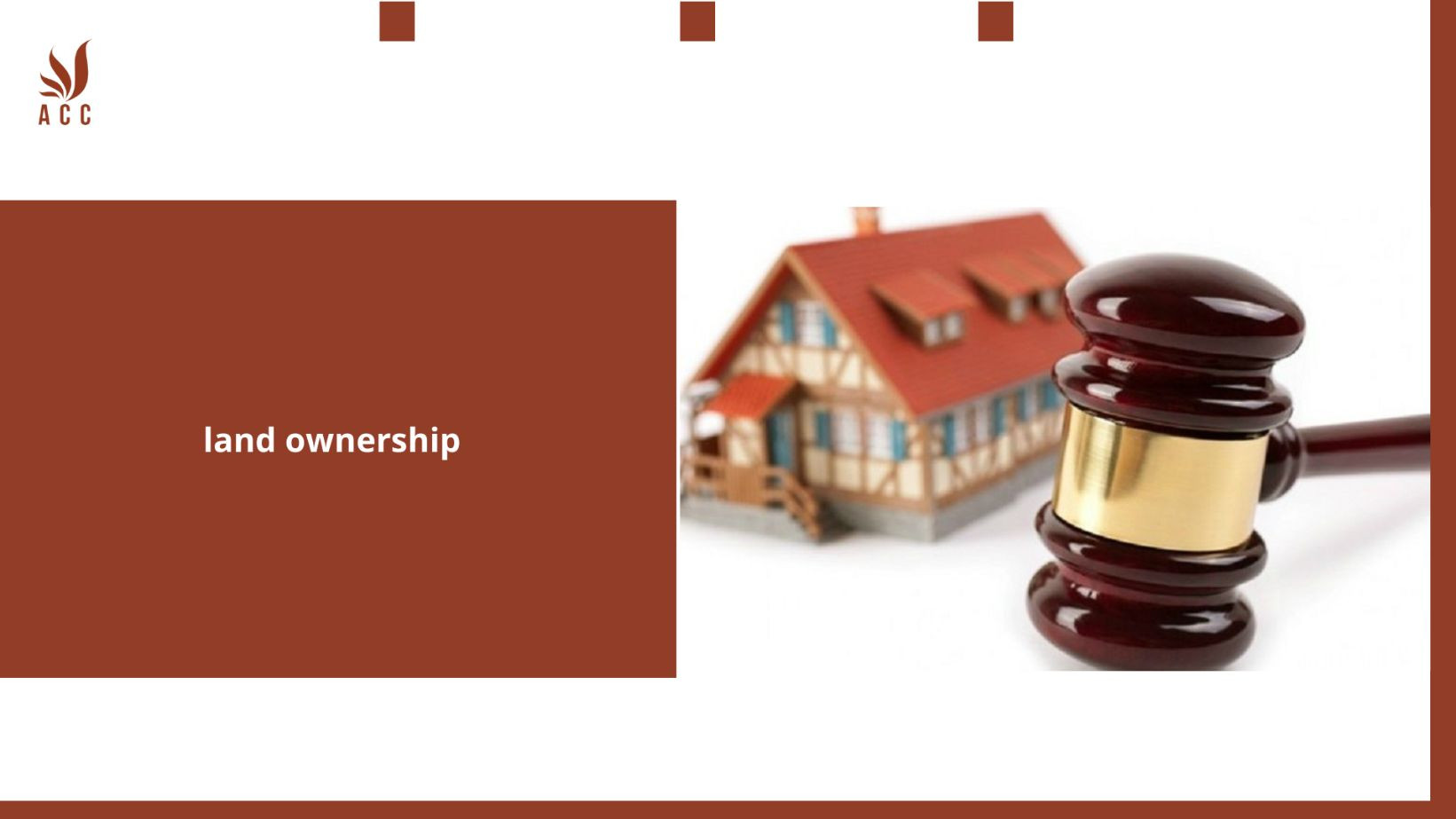Land ownership refers to the legal right to possess, control, and use a piece of land. When someone owns land, they have certain rights and responsibilities associated with that property. Here are some key points related to land ownership:

1. Title Deed or Certificate of Land Use Rights:
Land ownership is typically evidenced by a title deed or a certificate of land use rights issued by the relevant government authority. This document contains information about the property's boundaries, ownership details, and authorized land use.
2. Rights of Landowners:
Landowners have the right to use, occupy, and develop their land within the limits set by local zoning and land use regulations. They can build structures, lease or sell the land, and enjoy the benefits of any improvements or resources on the property.
3. Responsibilities:
Landowners are responsible for maintaining the property, paying property taxes, and complying with local land use laws and regulations. They may also be responsible for any environmental or safety issues on their land.
4. Transferring Ownership:
Land ownership can be transferred through sale, inheritance, or gift. These transfers often involve legal processes and documentation to ensure a clear and valid transfer of ownership.
5. Eminent Domain:
Governments can exercise eminent domain, which allows them to acquire private land for public use, typically through a fair compensation process. This is subject to legal procedures and limitations.
6. Land Use Restrictions:
Local zoning and land use regulations may impose restrictions on how land can be used. These regulations are in place to ensure orderly development and protect the environment.
7. Land Disputes:
Disputes over land ownership can arise for various reasons, including boundary disputes, title issues, or conflicting claims. Resolving such disputes often involves legal processes and may require a court's intervention.
8. Land Ownership Records:
Government land registries or land title offices maintain records of land ownership to provide transparency and establish legal ownership.
9. Co-Ownership:
In some cases, multiple individuals or entities may have joint ownership of a piece of land. This can come with specific legal arrangements and agreements.
10. When using ACC Law Firm's land law, entrepreneurs will receive
11. Q&a
Q1: What is land ownership, and how is it legally defined?
A1: Land ownership is the legal right to possess, use, and control a specific piece of land. It is defined by national, state, or local laws and typically involves the right to exclude others from your property, the right to sell or transfer the land, and the right to use the land as allowed by relevant regulations.
Q2: How can I acquire land ownership rights in my country?
A2: The process of acquiring land ownership rights varies by country, but it generally involves purchasing land, inheriting it, or obtaining it through government allocation or grants. You may need to follow specific legal procedures, such as title registration or land use approvals, depending on your jurisdiction.
Q3: What responsibilities come with land ownership?
A3: Landowners are typically responsible for property taxes, maintenance, and complying with land use regulations. These responsibilities may also include ensuring the land is used in a manner consistent with zoning laws and environmental regulations.
Q4: Can land ownership rights be challenged or lost?
A4: Yes, land ownership rights can be challenged or lost under certain circumstances. Common reasons include unpaid property taxes, violations of land use regulations, legal disputes, or eminent domain actions by the government. To protect your land ownership rights, it's essential to stay informed about local laws and fulfill your obligations as a landowner.
Nội dung bài viết:






Bình luận